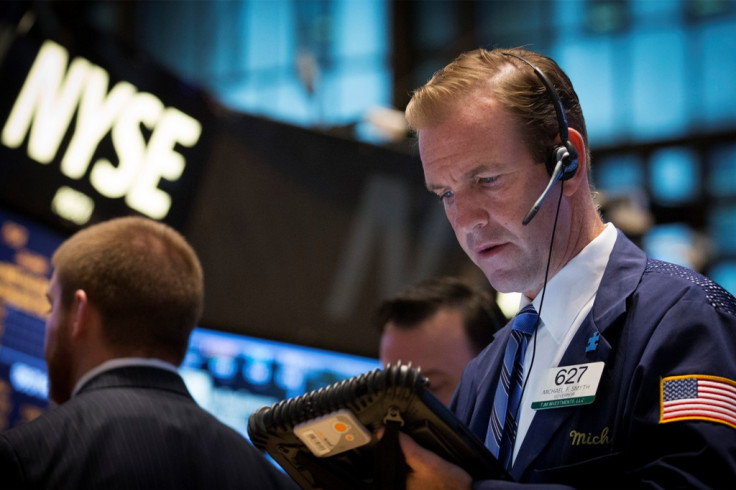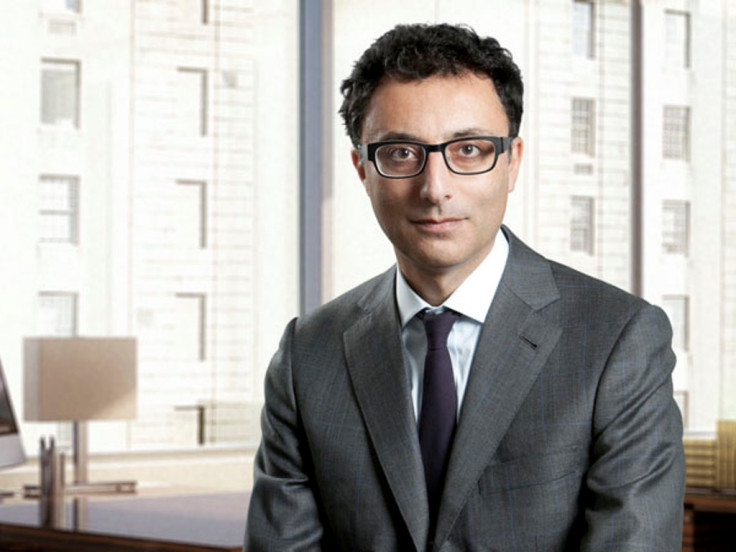US Bulls Unshaken as Trillions Lost in Global Sell-Off

Hedge fund manager Michael Shaoul has watched the US stock market lose 5% or more 18 times since 2009. Shaoul has been rewarded for staying put at each time.
The sell-off in emerging markets assets, which began a little over a week ago, has since spread to developed economies, wiping out $3tn (£1.84tn, €2.22tn) from global equity values.
However Shaoul's New York-based Marketfield Asset Management is not selling.
The Threat
This is a real bull market
The threat posed by emerging market economies is the greatest Shaoul has seen since 1998, and the plunge may worsen.
The International Monetary Fund has forecast that the growth advantage of emerging markets over advanced economies will shrink this year to the smallest since 2001.
Profits will increase 18% in 2014 as against 25% for the MSCI World Index, according to analyst estimates compiled by Bloomberg.
In addition, a Bloomberg index of the 20 most-traded emerging-market currencies has dropped some 8% so far this year.
US Recovery
While US stocks are being pulled down, things are looking up in the world's leading economy.
Economists have raised their projections for US GDP growth for the first time in four months; money-market indicators show no signs of stress; and corporate profits are on the rise.
The average estimate for 2014 US GDP growth is 2.8%, up from 2.6% at the beginning of 2014.
The difference between the US two-year interest rate swap rate and the comparable-maturity Treasury note yield, known as the swap spread, hovers at 13.6 basis points. The spread struck a record 167.3 basis points in October 2008.
Meanwhile, corporate profits have expanded 8.3% in the fourth quarter of 2013, the most since the three months ending September 2011, according to analyst estimates compiled by Bloomberg. Analysts forecast profits will expand even faster in 2015, at an annual pace of 11%, according to Bloomberg data.
Bull Market

"This is a real bull market," Shaoul, whose firm manages $21bn in assets, told Bloomberg.
"What happens in real bull markets is they do fine, and then they are occasionally interrupted by an exogenous shock."
"This episode will have a distinct beginning, middle and end," said Shaoul. His firm's Marketfield Fund has beaten 99% of its peers in the last three years, according to Bloomberg data.
"The end of it will be a significant buying opportunity in the US," Shaoul added.
"The US is still a leadership market and for years to come," said Bob Decker, senior portfolio manager at Toronto-based Aurion Capital Management, which manages assets worth C$6bn ($5.4bn).
"The economy is still moving in the right direction, monetary accommodation by central authorities is still relatively benign and plentiful liquidity exists. And that's an environment where stocks typically do well," Decker added.
"There are no signs of stress in US money markets," said Brian Smedley, an interest-rate strategist at Bank of America in New York.
"In fact there is so much cash in the system that the biggest problem in the short-term markets remains low rates. There is little evidence thus far that concerns about emerging markets have filtered into dollar funding markets broadly," Smedley added.
Emerging Markets Rattle
On 4 February, global markets tumbled to a near four-month low on signs the world's largest economy was stumbling, which further rattled investor sentiment following the sharp sell-off in emerging markets.
Investors switched to traditional safe-haven assets such German and US government bonds and the Japanese yen, after the Institute for Supply Management (ISM) said on 3 February its index of US factory activity dropped to 51.3 in January, its lowest level since May 2013, from 56.5 in December 2013.
German government bonds, considered to be among Europe's most secure investments, saw prices hit a six-month high.
A report this week revealed that European banks have loaned in excess of $3tn to emerging markets, more than four times US lenders, and several banks are not immune to increases in financial market turbulence in countries such as Turkey, Brazil, India and South Africa.
On 27 January, emerging markets led a global sell-off after foreign investors shed their exposure to dicey assets in those markets.
The benchmark MSCI emerging stock index dropped to a four-and-a-half-month low, losing 1.6% on the day.
The sell-off was triggered by concerns about slowing economic growth in China and by the uncertainty over the outcome of the US Federal Reserve's stimulus taper on markets that have relied on overseas funding to sustain growth.
© Copyright IBTimes 2025. All rights reserved.





















